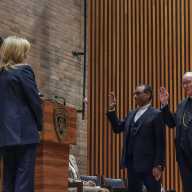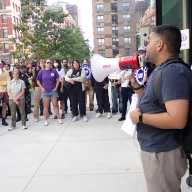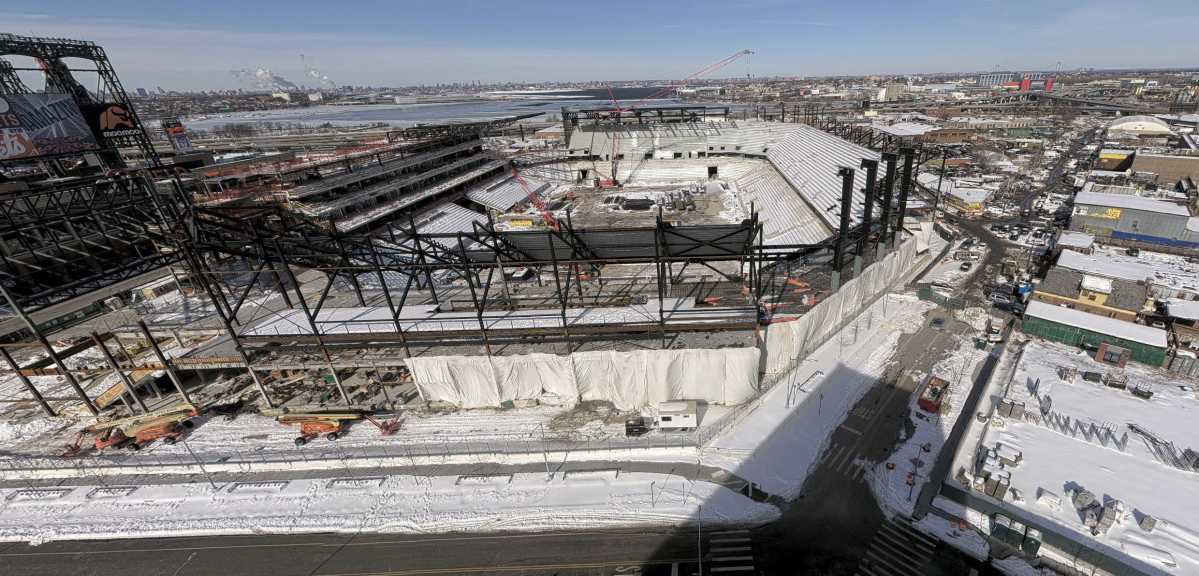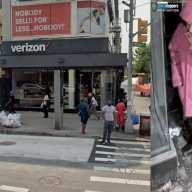By Ronda Kaysen
Downtown residents and business owners will be able to weigh in on the effects of long-term street closures in their neighborhood under legislation passed unanimously by the City Council on Wednesday.
The legislation, expected to be signed into law by Mayor Michael Bloomberg, will give the city as much as 18 months before it must respond to community concerns about areas such as Wall St. and Park Row, two streets closed in the aftermath of Sept. 11, 2001, a far cry from the original 45-day response period proposed last spring.
“Would I have wanted a shorter period? Of course I would have,” City Councilmember Alan Gerson said in a telephone interview. But “It’s a new process, you’re talking about changing the way that bureaucracies do business.” Gerson introduced the legislation last June in large part because both Wall St. and Park Row lie in his district.
The legislation, dubbed Park Row in reference to the street of the same name that has been cordoned off by the N.Y.P.D. since Sept. 11, 2001, will take effect six months after the mayor signs the bill into law. After that time, the city will have another six months before it must file a report known as a Community Reassessment Impact and Amelioration (CRIA) within 30 days, which would be followed by a community hearing.
“This will finally get the administration to deal with the street closures,” Gerson said. “Either re-open the streets or deal with the consequences.”
The city can, however, request a six-month extension before it files a CRIA, if it needs additional time. Earlier this week, a mayoral spokesperson said Mayor Bloomberg would sign the bill after it passed the Council.
Once the law goes into effect, the city must file the report after six months of a street closure or request a six-month extension.
Park Row and Wall St. will not reopen as a result of the new law, Gerson added. The legislation is intended to give residents and local business owners a forum to express their frustrations and suggest possible solutions, which the city is required to consider.
“You will see changes in the conditions in and around Park Row,” Gerson said. “You will see the development of a plan that encourages people to patronize the restaurants and shops in the area.”
The legislation will formalize policies the city already practices, according to Kay Sarlin, a city Department of Transportation spokesperson. “We do a lot of this now for construction projects,” she said. “But it puts it into law and it’s good government so we’re excited about it.”
The new legislation — regardless of the lengthy grace period — is welcome news for Julie Menin, whose restaurant Vine on Broad St. closed three weeks ago, in large part because Wall St. remains closed to traffic.
Many small business owners in Chinatown say they have lost business as a result of the Park Row closure.
Ronda@DowntownExpress.com
WWW Downtown Express


































